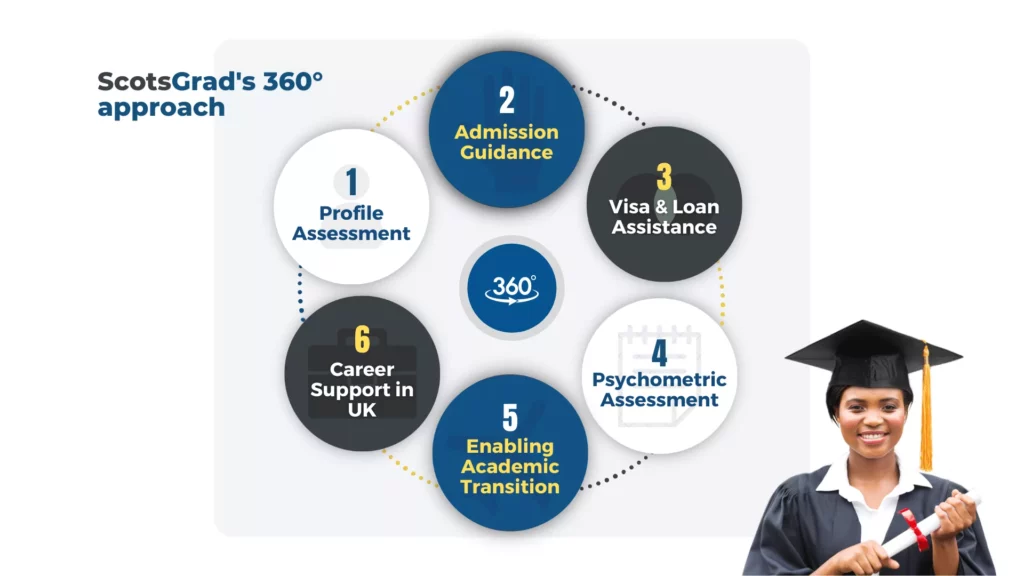Founded by UK Alumni
Study in the UK Starts with Us.
Admission Guidance, Program & University Selection, VISA & Loan Assitance, Academic Transition and Career support – Everything You Need in One Place!
Why Choose Us
Expertise You Can Trust.
Get The Right UK Education Guidance, Advice and Support from Those Who've Been There!
UK Alumni Mentors
Profile Assessment
Academic transition
Guidance for a smooth transition to the UK Education system.
Career Support
Our Approach
Our UK-Alumni-Crafted Approach, Ensuring Your Unique Journey to UK Education A Success!

Meet Your Mentors
From UK Alumni to Your Guiding Lights: UK Alumni Turned Mentors with First-hand Experience and Deep Expertise.

Nithi Sevaguru
UK Alumni Mentor

Kathiravan A
UK Alumni Mentor

Chandra
UK Alumni Mentor

Saleel
UK Alumni Mentor

Richard
UK Alumni Mentor

Tina
UK Alumni Mentor

Ashwathy
UK Alumni Mentor

Mehaa
UK Alumni Mentor
Success Stories

"ScotsGrad provided all the valuable resources for my master's program.ScotsGrad is the one stop solution for your study abroad queries and you know it's completely free of cost for the services. You should definitely check their website. Highly recommend."
Prasanth E
Student in UK From India
"ScotsGrad came to me like a lifeline. I was lost with all the process to study abroad after consulting numerous consultants but they ensure I found my way. From day 1 they have always been helpful and ensure my smooth journey to get into Stirling University."
Sooraj SasiKumar
Stirling University UK
" Exceptional team, and their down-to-earth approach made the entire experience enjoyable and stress-free. I am incredibly grateful for their support, and I highly recommend them to anyone considering studying abroad. 5-star service and dedication."








